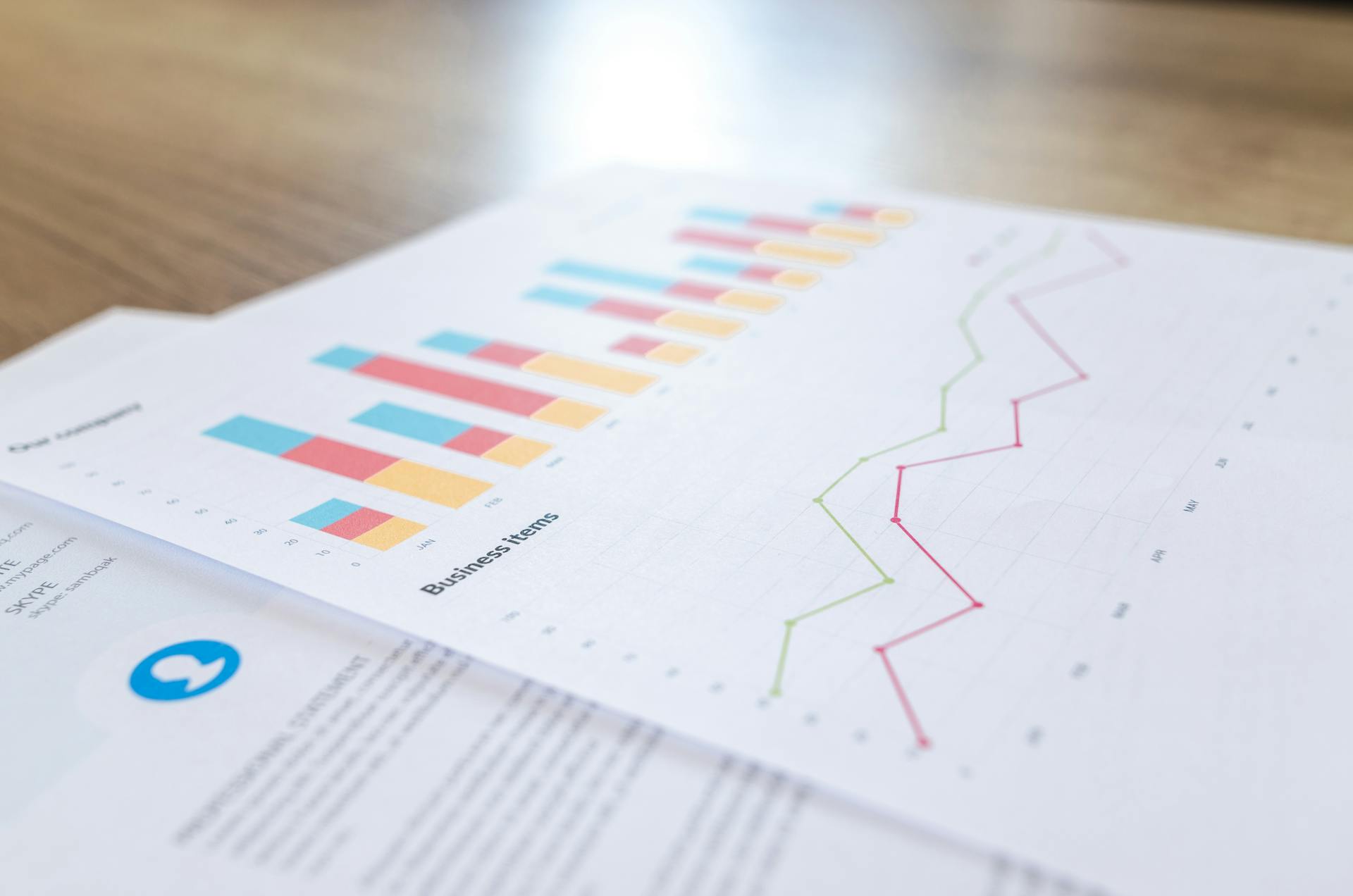Pay stubs are an essential part of the employment process, providing proof of income and verifying employment history. However, with the rise of technology, creating fake paystubs has become easier than ever. Fake paystubs can have serious consequences for both individuals and businesses, which is why it’s crucial to be able to recognize them.
By definition, fake pay stubs are counterfeit documents that provide false information about an individual’s income and employment history. These documents are designed to deceive and mislead, often demonstrating inflated salaries or fraudulent employment history.
Individuals may use fake pay stubs to gain financial benefits, such as securing loans or qualifying for rental applications. Employers may unknowingly accept fake pay stubs, leading to potential legal and financial liabilities.
In this article, we’ll explore the implications of fake pay stubs, how to recognize them, and the legal consequences of using or accepting fraudulent documentation.
Key Takeaways:
- Fake pay stubs are counterfeit documents that provide false information about an individual’s income and employment history.
- Individuals may use fake pay stubs to gain financial benefits, while employers may unknowingly accept them, leading to potential legal and financial liabilities.
- It is crucial to be able to recognize fake pay stubs and understand the legal consequences of using or accepting them.
Understanding Pay Stubs: Real vs. Fake
Pay stubs are essential documents that provide employees with a detailed breakdown of their earnings and deductions. They are also critical for employers to maintain accurate financial records and ensure compliance with tax laws and other regulations. However, not all pay stubs are created equal, and it is crucial to distinguish between genuine and fake ones.
Real check stubs vs fake: There are several key differences between a real pay stub and a fake one. A genuine pay stub will typically include the employee’s name, address, social security number, and other identifying information. It will also detail the employee’s gross pay, net pay, and all applicable deductions, such as taxes, insurance, or retirement contributions. In contrast, a fake pay stub may contain inaccurate or incomplete information or show unusually high earnings with few or no deductions.
To assess the authenticity of a pay stub, individuals or employers should look for clues that suggest the document may be fake. These include:
- Inconsistent or incorrect information, such as misspelled words or inconsistent formatting
- Unusual or suspicious calculations, such as excessive earnings or unusually low deductions
- Absence of essential information, such as the employer’s name and address
It is essential to scrutinize pay stubs carefully to avoid the potential pitfalls of using fake ones. By familiarizing oneself with the differences between real and fake pay stubs, individuals and employers can ensure compliance with legal and financial requirements and avoid the negative consequences of fraudulent activities.
Why People Use Fake Pay Stubs
There are various reasons why individuals may resort to using fake pay stubs. One of the most common motivations is to inflate their income, presenting a false financial picture to lenders, landlords, or other parties. By manipulating their income information, they may be able to secure loans, leases, or other agreements that they would otherwise not qualify for.
Another common scenario where fake pay stubs come into play is during the employment verification process. When seeking a new job, individuals may submit fake pay stubs to demonstrate previous employment and salary history. This can be particularly tempting for job seekers who lack relevant work experience or who have gaps in their employment history, as it creates a false impression of market value and qualifications.
However, using fake pay stubs for employment verification purposes is not only unethical but also illegal. Employers are becoming increasingly savvy in detecting fake documentation and are implementing more robust verification procedures, including contacting previous employers directly and cross-checking information with tax records and other public databases.
The Legal Implications of Fake Pay Stubs
Using or creating fake pay stubs can lead to serious legal consequences. Those who use fraudulent pay stubs to secure loans, apply for rental leases, or obtain employment can face criminal charges and hefty fines. Additionally, employers who accept false documentation may also be held accountable for their actions.
The severity of the penalties depends on the state and the extent of the forgery. In some states, using fake pay stubs is a felony offense, while in others, it is considered a misdemeanor. In most cases, individuals found guilty of creating or using fraudulent pay stubs could face imprisonment, probation, and fines ranging from a few thousand dollars to tens of thousands of dollars.
It is essential to note that the creation of fake pay stubs is a crime in and of itself, regardless of whether they were used or not. This means that even if the individual did not use the fabricated pay stub, they could still face legal repercussions for creating it.
There are also implications for businesses that knowingly use fake pay stubs or fail to verify the authenticity of employee documentation. Under the Immigration and Nationality Act, employers are required to verify the identity and employment eligibility of all employees, which includes checking Social Security and immigration documents. Failure to comply with these regulations can result in civil penalties of up to $22,957 per violation and criminal charges for repeated offenses.
In conclusion, the legal implications of using or creating fake pay stubs are severe, and it is crucial to avoid any involvement with fraudulent documentation. Individuals should always prioritize honesty and transparency when it comes to financial matters, and employers should implement robust verification procedures to prevent the use of fake pay stubs in their operations.
How to Spot Fake Pay Stubs
Being able to recognize fake pay stubs is crucial for individuals and businesses alike. Here are some tips for identifying discrepancies:
- Check for inconsistencies in information, such as different employer names or addresses
- Look for unusual formatting, such as misaligned columns or odd font sizes
- Verify that the pay stub information matches the individual’s employment information, such as hourly wages and hours worked
- Ensure that the pay stub includes all required information, such as taxes and deductions
- Check the calculations to make sure they are accurate
- Compare the pay stub to others from the same employer to look for differences
By paying attention to these details, individuals and businesses can avoid the risks and negative consequences of accepting fake pay stubs.
Tools and Resources for Verification
Verifying the authenticity of pay stubs is critical in detecting and preventing fraudulent activities. Fortunately, various tools and resources are available to aid in the verification process.
One of the most effective ways to verify pay stubs is by using pay stub verification tools. These tools are designed to authenticate pay stubs by cross-referencing them with trusted databases and financial records. Some of the most popular pay stub verification tools include:
- Checkstubmaker.com
- PayStubs.net
- ThePayStubs.com
Another way to verify pay stubs is by utilizing online pay stub databases. These databases contain a vast trove of information on companies’ income data, tax returns, and other financial records, which can be used to authenticate pay stubs. Some popular online pay stub databases include:
- ADP
- Paychex
- Gusto
By leveraging these tools and resources, individuals and businesses can significantly reduce the risk of accepting fake pay stubs and ensure the accuracy of their financial documentation.
Reporting Fake Pay Stubs
Instances of fake pay stub usage should be reported to the appropriate authorities to combat the proliferation of fraudulent activities related to pay stubs. Individuals who encounter fake pay stubs can report them to the Internal Revenue Service (IRS) by filling out Form 3949-A, Information Referral, which can be found on their website. This form can also be used to report any suspected tax fraud or evasion.
Employers who discover that they have unknowingly accepted fake pay stubs should consider reporting the incident to their state’s department of labor or Attorney General’s office. This will help to create a formal record of the incident and may lead to further investigations or penalties for the individual who created the fraudulent documents.
It is important to note that reporting fake pay stubs may be done anonymously, and whistleblowers who come forward are protected under the law. Reporting instances of fraud helps protect both individuals and businesses, and contributes to the overall prevention of fraudulent activities.
Consequences of Accepting Fake Pay Stubs
Accepting fake pay stubs can lead to serious consequences for employers. Not only is it illegal to use fraudulent documents, but it can also put a business at risk of financial loss and legal liabilities.
The risks of accepting fake pay stubs include:
- Financial loss: If an employee is using fake pay stubs to secure loans or other financial benefits, the lender may hold the employer accountable for the unpaid debts. This can lead to costly legal fees, court proceedings, and negative impacts on the company’s credit score.
- Criminal charges: Intentionally using or creating fake pay stubs can result in criminal charges. Depending on the severity of the offense and the state laws, the penalties can range from fines to imprisonment.
- Negative reputation: Accepting fake pay stubs can damage a company’s reputation and credibility. It can signal to others that the business is not trustworthy and may engage in unethical practices.
- Regulatory violations: Depending on the industry, accepting fake pay stubs may violate compliance regulations and result in fines or sanctions.
Employers can also face legal liabilities for accepting fake pay stubs, even if they were not aware of their inauthenticity. In some cases, the employer may be held liable for damages resulting from the employee’s actions, such as fraudulent financial activity or breach of contract.
To mitigate these risks, employers should implement thorough verification processes, cross-checking pay stubs with other documents and records to ensure accuracy. It is also crucial to stay informed about evolving techniques used to create fake pay stubs and to train employees on how to spot red flags and discrepancies.
By taking proactive measures, businesses can protect themselves against the consequences of accepting fake pay stubs and maintain their integrity and credibility in the marketplace.
Real Check Stubs vs. Fake: Why Choose Authenticity?
Choosing to use authentic pay stubs over fake ones can bring numerous benefits and advantages. By accurately reporting income and payroll information, individuals and businesses can establish credibility and trustworthiness, which can result in improved relationships with landlords, lenders, and employers.
One of the most significant benefits of using real check stubs is that they provide a clear and accurate record of an individual’s income. This record can be crucial when applying for loans, credit cards, or mortgages, as it allows banks and lenders to evaluate the borrower’s financial stability. Moreover, using authentic pay stubs can help individuals avoid falling into debt traps, as they can closely monitor their expenses and ensure that their income is sufficient to cover all their financial obligations.
Another advantage of using real check stubs is that they enable businesses to comply with legal and regulatory requirements. By accurately reporting employee salaries and deductions, employers can avoid penalties and legal issues related to payroll fraud or tax evasion. Authentic pay stubs can also help businesses build trust with their employees, as they demonstrate a commitment to transparency and fairness in compensation.
Finally, using authentic pay stubs can improve accountability and transparency in financial transactions. By keeping accurate records of income and expenses, individuals and businesses can avoid disputes and misunderstandings related to financial matters. Providing authentic pay stubs can also facilitate communication and collaboration with accountants, tax professionals, and other financial advisors, facilitating strategic decision-making and long-term financial planning.
Protecting Against Fake Pay Stubs
In today’s fast-paced world, fraudsters are becoming increasingly skilled at producing fake pay stubs. Therefore, it’s crucial for individuals and businesses to take the necessary steps to prevent the use of fraudulent pay stubs. Here are some practical measures you can take to safeguard against fake pay stubs:
Enhance Verification Processes
One of the most effective ways to prevent the use of fake pay stubs is to enhance verification processes. Ensure that the information provided on the pay stub matches the information in your records. Implement a thorough verification process that includes verifying employment and income information with employers before approving transactions.
Implement Internal Checks
Internal checks can help detect fraudulent activities before they cause harm. Set up internal controls that require multiple levels of review before approving any transactions. These checks can include verifying the authenticity of pay stubs, reviewing bank statements for suspicious activity, and conducting random audits of employee records and payroll data.
Stay Informed
Finally, stay informed about evolving techniques in producing fake pay stubs. Keep up-to-date with industry news and trends and share information about new trends and processes with colleagues. Awareness can help you and your team spot red flags and identify discrepancies in pay stubs more easily.
By taking these practical measures, individuals and businesses can protect themselves against the risks of fake pay stubs. It’s crucial to implement these protective measures and ensure that authenticity and accuracy are upheld in financial records.
Conclusion
In conclusion, the use of fake pay stubs can have serious consequences for both individuals and businesses. It is vital to be able to recognize and report instances of fraudulent activity and to implement robust measures to protect against it. The risks of accepting fake pay stubs go beyond legal liabilities and extend to the credibility and trustworthiness of financial documentation. By choosing authenticity and using real check stubs, individuals and businesses can safeguard against potential financial and reputational damage.
Staying informed about evolving techniques used in creating fake pay stubs and utilizing verification tools and resources can help ensure the authenticity of financial documentation. It is the responsibility of individuals and businesses to remain vigilant and contribute to the prevention of fraudulent activities related to pay stubs. By taking proactive measures, we can promote a culture of accountability and integrity in financial transactions and mitigate the risks of using fake pay stubs.
Remember, the implications of accepting or using fake pay stubs can be severe. It is essential to prioritize authenticity and accuracy in financial documentation to protect against potential legal, financial, and reputational repercussions. By working together to combat fraudulent activities, we can promote trust and confidence in financial transactions and strengthen our financial systems.
Fake Paystubs FAQ
What are fake pay stubs?
Fake pay stubs are fabricated documents that mimic genuine pay stubs but contain false information regarding an individual’s income and employment details.
How can I recognize fake pay stubs?
Recognizing fake pay stubs can be challenging, but some red flags to watch out for include inconsistent information, unusual formatting, or suspicious calculations. Additionally, verifying the authenticity of the pay stub through online databases or professional verification services can help identify discrepancies.
What are the implications of using or accepting fake pay stubs?
Using or accepting fake pay stubs can have serious consequences. Individuals may face legal penalties, including fines or even imprisonment, for creating or using fraudulent documentation. Employers who unknowingly accept fake pay stubs may also be liable for negligence or other legal repercussions.
How do real pay stubs differ from fake ones?
Real pay stubs contain accurate and verifiable information about an individual’s income, deductions, taxes, and employment details. They typically adhere to specific formatting standards, while fake pay stubs may exhibit inconsistencies, incorrect calculations, or unusual discrepancies.
Why do people use fake pay stubs?
There are various reasons why individuals may resort to using fake pay stubs. Some common motivations include attempting to manipulate income information for credit applications, loan approvals, or rental applications. Fake pay stubs can also be employed to deceive employers during the employment verification process.
What are the legal implications of using or creating fake pay stubs?
Using or creating fake pay stubs is illegal and can result in criminal charges. The specific penalties vary by jurisdiction but may include fines, probation, or even imprisonment. It is essential to understand and comply with the legal framework surrounding the production and use of pay stubs.
How can I spot fake pay stubs?
Spotting fake pay stubs requires attention to detail. Look for discrepancies such as incorrect calculations, inconsistent information, or unusual formatting. Paying attention to specific elements like company logos, contact information, and genuine formatting standards can also help identify potential fake pay stubs.
Are there tools and resources available for pay stub verification?
Yes, several online tools and resources can aid in the verification of pay stub authenticity. Online databases and professional verification services can help individuals and businesses validate the accuracy and legitimacy of pay stubs.
How can I report instances of fake pay stub usage?
If you encounter instances of fake pay stub usage, it is crucial to report them to the appropriate authorities. Contact local law enforcement, relevant regulatory agencies, or your employer’s HR department to provide them with the necessary information to investigate and take appropriate action.
What are the risks of accepting fake pay stubs?
Accepting fake pay stubs can expose employers to various risks and liabilities. It may result in financial losses, reputational damage, or legal consequences. Employers should implement robust verification processes to minimize the likelihood of accepting fraudulent documentation and protect their businesses.
Why should I choose authenticity with real check stubs?
Choosing authenticity with real check stubs provides numerous benefits. Genuine pay stubs ensure accurate financial documentation, strengthening credibility and trust. They also promote transparency and compliance with legal and regulatory requirements, avoiding potential legal issues and negative repercussions.
How can I protect myself against fake pay stubs?
Protecting yourself against fake pay stubs requires vigilance and implementing preventive measures. Enhance your verification processes, stay informed about evolving fake pay stub techniques, and consider using online tools or professional services for pay stub validation. Implement internal checks and balances to minimize the risk of accepting fraudulent documentation.







